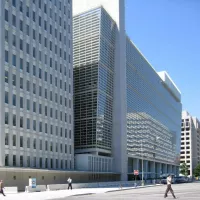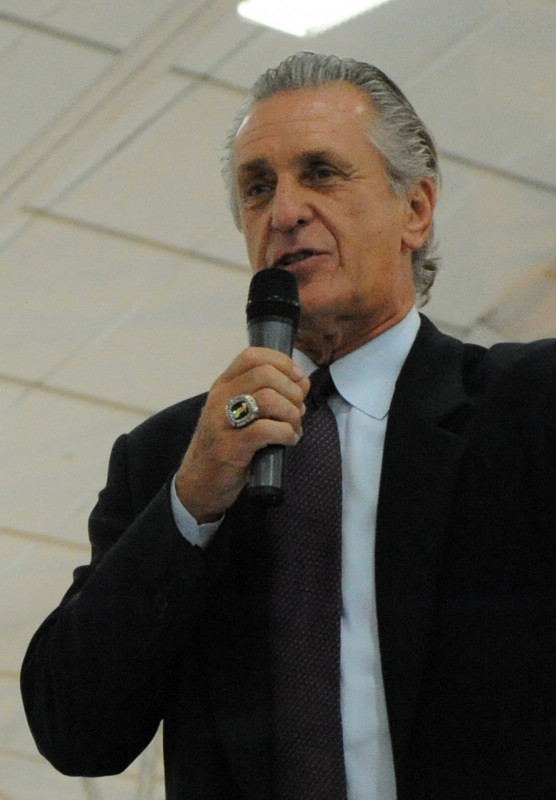Liechtenstein is a small, doubly landlocked principality in the Central European Alps, bordered by Switzerland and Austria. Established in 1719 and fully independent since 1866, it is a constitutional monarchy ruled by Prince Hans-Adam II. With an area of just over 160 square kilometers and a population around 41,389, Liechtenstein is one of Europe's smallest countries and the world's smallest country to border two nations. Notably, it is one of the few countries with no national debt. The official language is German.
November 1918: Liechtenstein putsch
In November 1918, popular unrest from economic devastation in World War I led to the Liechtenstein putsch.
1921: New constitution introduced
In 1921, a new constitution based on constitutional monarchy was introduced, a result of the November 1918 Liechtenstein putsch.
1923: Customs Treaty with Switzerland
In 1923, Liechtenstein agreed to the Customs Treaty with Switzerland.
1923: Liechtenstein's consular representation handled by Switzerland
Since the Customs Treaty with Switzerland of 1923, Liechtenstein's consular representation has been mostly handled by Switzerland.
1927: Gampriner Seelein formed
In 1927, the Gampriner Seelein, the only naturally-formed lake in Liechtenstein, was created by a flooding of the Rhine with enormous erosion.
1929: Prince Franz I succeeds to the throne
In 1929, 75-year-old Prince Franz I succeeded to the throne and married Elisabeth von Gutmann.
March 1939: Coup attempted while Franz Joseph II was on a state visit to Berlin
In March 1939 a coup was attempted while Franz Joseph II was on a state visit to Berlin.
1939: Death of Andreas Kieber
In 1939, Andreas Kieber, the last soldier to have served under the flag of Liechtenstein, passed away at the age of 94.
1943: Inland canal built connecting to the Rhine
In 1943, an inland canal was built in Liechtenstein, connecting to the Rhine.
1944: Nazis abandoned implementing Operation Tannenbaum
In 1944, the Nazis abandoned implementing Operation Tannenbaum after the Allied invasion of France, sparing Liechtenstein from enduring a Nazi occupation.
1950: Liechtenstein signed Statute of the International Court of Justice
In 1950, Liechtenstein signed the Statute of the International Court of Justice.
1967: Portrait Ginevra de' Benci by Leonardo da Vinci sold
In 1967, the Liechtenstein dynasty sold family artistic treasures, including the portrait Ginevra de' Benci by Leonardo da Vinci, which was purchased by the National Gallery of Art of the United States.

1968: Referendum rejects women's suffrage
In 1968, a referendum on women's suffrage was held in Liechtenstein, but it was rejected.
1971: Referendum rejects women's suffrage again
In 1971, Liechtenstein held another referendum on women's suffrage, which was again rejected.
1973: Rikky von Opel in Formula One
In 1973, American-born German-Colombian Rikky von Opel raced under the flag of Liechtenstein in Formula One.
1973: Third referendum rejects women's suffrage
In 1973, a third referendum on women's suffrage was held in Liechtenstein, but it was rejected for the third time.
1974: Rikky von Opel in Formula One
In 1974, American-born German-Colombian Rikky von Opel raced under the flag of Liechtenstein in Formula One.
1975: Liechtenstein signed CSCE Helsinki Final Act
In 1975, Liechtenstein signed the CSCE Helsinki Final Act (today's OSCE) together with 34 other states.
1976: Hanni Wenzel wins bronze
In 1976, Hanni Wenzel won a bronze medal.
1976: Manfred Schurti at Le Mans
In 1976, Manfred Schurti competed in the 24 Hours of Le Mans as a Porsche factory driver, achieving a best finish of 4th overall.
1978: Liechtenstein joined the Council of Europe
In 1978, Liechtenstein joined the Council of Europe.
1980: Hanni and Andreas Wenzel win Olympic medals
In the 1980 Winter Olympics, Hanni Wenzel won two gold medals and one silver medal in alpine skiing, while her brother Andreas won one silver medal in the giant slalom event.
July 1984: Women granted the right to vote
On 1 July 1984, Liechtenstein became the last country in Europe to grant women the right to vote. The referendum, in which only men were allowed to participate, narrowly passed with 51.3% in favor.
1984: Andreas Wenzel wins bronze
In 1984, Andreas Wenzel won one bronze medal in the giant slalom event.
1984: Father transfers duties to Prince Hans-Adam II
In 1984, his father transferred day-to-day governmental duties to Prince Hans-Adam II as regent.
1985: Swiss Army accidentally burns forest patch inside Liechtenstein
In 1985, during an exercise, the Swiss Army accidentally fired shells that burned a patch of forest inside Liechtenstein, which was resolved "over a case of white wine".
September 1990: Liechtenstein admitted into the United Nations
On September 20, 1990, Liechtenstein was admitted into the United Nations as the 160th member state.
September 18, 1990: Liechtenstein admitted to United Nations
On September 18, 1990, Liechtenstein was admitted to the United Nations (UN).
1991: Liechtenstein joined the European Free Trade Association
In 1991, Liechtenstein joined the European Free Trade Association (EFTA) as a full member.
1992: Membership in the Forum of Small States
In 1992, Liechtenstein became a member of the Forum of Small States, a group consisting of nations with fewer than ten million inhabitants at the time of joining.
May 1995: Liechtenstein joins the European Economic Area
In May 1995, Liechtenstein became a member of the European Economic Area (EEA), an organization bridging the European Free Trade Association (EFTA) and the European Union.
1995: Liechtenstein became member of the European Economic Area and the World Trade Organization
Since 1995, Liechtenstein has been a member of the European Economic Area (EEA) and the World Trade Organization (WTO).
1996: FC Vaduz's Success in the European Cup Winners' Cup
In 1996, FC Vaduz had a significant success in the European Cup Winners' Cup, drawing with and defeating FC Universitate Riga before facing Paris Saint-Germain F.C.
November 2000: Completion of Kunstmuseum Liechtenstein
In November 2000, the Kunstmuseum Liechtenstein, designed by Swiss architects Morger, Degelo, and Kerez, was completed in Vaduz. The building is a "black box" made of tinted concrete and black basalt stone.
2000: Switzerland appointed an ambassador to Liechtenstein
Since 2000, Switzerland has appointed an ambassador to Liechtenstein, but he resides in Bern.
2002: Book about Liechtenstein's World Cup Qualifying Campaign
In 2002, British author Charlie Connelly wrote a book about Liechtenstein's unsuccessful qualifying campaign for the 2002 World Cup.
2002: Liechtenstein has a permanent ambassador in Berlin
Since 2002, Liechtenstein has had a permanent ambassador in Berlin, while the German embassy in Switzerland is also responsible for the Principality.
March 2003: Constitutional referendum expands prince's prerogatives
In March 2003, a constitutional referendum approved amendments that expanded the prince's prerogatives.
March 2003: Constitution of Liechtenstein amended
In March 2003, the Constitution of Liechtenstein was amended to give additional powers to the monarch.
2003: Constitutional referendum grants monarch greater powers
In 2003, a constitutional referendum granted the monarch greater powers, including the power to dismiss the government, nominate judges, and veto legislation.
2004: Prince Hans-Adam II transfers duties to Hereditary Prince Alois
In 2004, Prince Hans-Adam II transferred day-to-day governmental duties to his eldest son Hereditary Prince Alois as regent.
2004: Establishment of Radio Liechtenstein
In 2004, Radio Liechtenstein was established along with the public-service broadcaster Liechtensteinischer Rundfunk (LRF) that operated it.
2004: Liechtenstein draws with Portugal and defeats Luxembourg
In autumn 2004, the Liechtenstein national football team drew 2–2 with Portugal and defeated Luxembourg 4–0 in a 2006 World Cup qualifying match.
2005: Jewish slave labour investigation
In 2005, a government-commissioned investigation revealed that Jewish slave labourers from the Strasshof concentration camp had worked on estates in Austria owned by Liechtenstein's Princely House.
2006: Liechtenstein education ranked 10th-best in the world
In 2006, a Programme for International Student Assessment (PISA) report ranked Liechtenstein's education as the 10th-best in the world.
2006: Liechtenstein defeats Luxembourg in 2006 World Cup qualifying match
In autumn 2004, the Liechtenstein national football team defeated Luxembourg 4-0 in a 2006 World Cup qualifying match.
2006: New surveys set Liechtenstein's area at 160 km
New surveys in 2006 using more accurate measurements set Liechtenstein's area at 160 km.
March 2007: Accidental Swiss Army Incursion
In March 2007, a 170-man Swiss infantry unit inadvertently crossed 1.5 kilometers into Liechtenstein during a training exercise. The unit realized their mistake and turned back. The Swiss Army apologized, and a Liechtenstein spokesperson responded, "No problem, these things happen."
2007: OECD identifies Liechtenstein as an uncooperative tax haven
In 2007, the Paris-based Organisation for Economic Co-operation and Development identified Liechtenstein as one of the remaining uncooperative tax havens.
2008: Liechtenstein joined the Schengen/Dublin Agreement
In 2008, Liechtenstein joined the Schengen/Dublin Agreement together with Switzerland.
2008: Creation of 1FLTV
In 2008, the private television channel 1FLTV was created with the goal of joining the European Broadcasting Union, but it was not accomplished.
2008: Unemployment Rate
In 2008, the unemployment rate in Liechtenstein was 1.5%.
May 2009: OECD removes Liechtenstein from blacklist
On 27 May 2009, the OECD removed Liechtenstein from its blacklist of uncooperative countries.
July 2009: Diplomatic relations established with the Czech Republic
On July 13, 2009, diplomatic relations were established between Liechtenstein and the Czech Republic.
August 2009: Agreement with HM Revenue & Customs to exchange information
In August 2009, the British government department HM Revenue & Customs reached an agreement with Liechtenstein to start exchanging information. Up to 5,000 British investors had approximately £3 billion deposited in accounts and trusts in the country.
September 2009: Agreement on cooperation and exchange of information in tax matters signed with Germany
In September 2009, Liechtenstein and Germany signed an agreement on cooperation and the exchange of information in tax matters. The agreement, based on the OECD model, allowed for the exchange of information on tax matters upon request starting in the 2010 tax year.
December 2009: Diplomatic relations established with Slovakia
On December 9, 2009, diplomatic relations were established between Liechtenstein and Slovakia.
September 2010: Close game against Scotland
On 7 September 2010, Liechtenstein nearly drew 1–1 against Scotland in Glasgow, leading 1–0 in the second half, but ultimately lost 2–1 due to a late goal.
2010: Religious Demographics
According to the 2010 census, 85.8% of Liechtenstein's population were Christian, with 75.9% adhering to the Catholic faith. Islam was the largest minority religion, representing 5.4% of the total population.
June 2011: Liechtenstein defeats Lithuania
On 3 June 2011, Liechtenstein defeated Lithuania 2–0 in a football match.
2012: Liechtenstein has highest PISA scores
In 2012, Liechtenstein had the highest PISA scores of any European country.
2012: Constitutional referendum reaffirms prince's powers
In 2012, a further constitutional referendum reaffirmed the prince's powers, with 76% of voters rejecting a proposal to limit the princely veto over legislation approved by referendum.
2013: Closure of Schaanwald railway station
In 2013, Schaanwald railway station, one of the four railway stations in Liechtenstein, was closed.
2014: GDP Estimated by CIA World Factbook
As of 2014, the CIA World Factbook estimated Liechtenstein's gross domestic product (GDP) on a purchasing power parity basis to be $4.978 billion.
October 2015: Tax Agreement with the European Union
In October 2015, the European Union and Liechtenstein signed a tax agreement to ensure the automatic exchange of financial information in case of tax disputes.
2016: Liechtenstein at the Summer Olympics
In 2016, Julia Hassler and Christoph Meier represented Liechtenstein at the Summer Olympics, with Julia Hassler serving as the nation's flag bearer.
2016: Data collection started under the EU tax agreement
In 2016, data collection began under the tax agreement signed between the European Union and Liechtenstein in October 2015.
September 2017: Liechtenstein signs United Nations Treaty on the Prohibition of Nuclear Weapons
On 20 September 2017, Liechtenstein signed the United Nations Treaty on the Prohibition of Nuclear Weapons.
2018: Average life expectancy at birth in Liechtenstein
According to 2018 estimates, Liechtensteiners have an average life expectancy at birth of 82.0 years (male: 79.8 years, female: 84.8 years).
2018: Tina Weirather wins bronze
In 2018, Tina Weirather won a bronze medal in the Super-G.
September 2019: Prince of Liechtenstein Ranked Fifth Wealthiest Monarch
As of September 2019, the Prince of Liechtenstein was ranked as the world's fifth wealthiest monarch, possessing an estimated wealth of US$3.5 billion.
2019: Switzerland shuts off its digital terrestrial television network
Since Switzerland shut off its digital terrestrial television network in 2019, the only free television signals available in Liechtenstein are German and Austrian channels from the Sender Pfänder in Bregenz.
March 2020: Electric motorcycle world record
In March 2020, the distance world record for electric motorcycles was set in Liechtenstein, with Michel von Tell driving over 1,000 miles within 24 hours on the first electric Harley-Davidson.
2020: German as main language
In 2020, German was spoken by 92% of Liechtenstein's population as their main language.
2020: Referendum halts railway upgrade plans
In 2020, plans to upgrade the railway line and increase rail traffic in Liechtenstein were halted by a referendum.
2021: GDP per capita
As of 2021, Liechtenstein's estimated gross domestic product (GDP) per capita was $184,083.
2023: Liechtenstein Population
As of 2023, Liechtenstein's population was 41,232, making it Europe's fourth-smallest country by population.
2023: Tourism in Liechtenstein
In 2023, Liechtenstein's accommodation establishments recorded 116,759 guest arrivals and 222,266 overnight stays.
2023: Electric motorcycle world record still current
In 2023, the electric motorcycle world record set in Liechtenstein in March 2020, is still current.
October 2024: Liechtenstein Joins International Monetary Fund
In October 2024, Liechtenstein became a member of the International Monetary Fund during the World Bank Group's annual meeting in Washington, D.C.
2024: Portrait Ginevra de' Benci worth $47 million dollars
In 1967, the Liechtenstein dynasty sold family artistic treasures, including the portrait Ginevra de' Benci by Leonardo da Vinci, worth $47 million in 2024 dollars.

2024: Referendums infulenced as late as 2024
In 2009, the Prince proposed another referendum to the population even influencing referendums as late as 2024.
2024: Liechtenstein passes same-sex marriage legislation
In 2024, Liechtenstein passed legislation legalizing same-sex marriage, which was set to enter into force in 2025.
April 2025: Liechtenstein elects first female prime minister
In April 2025, Liechtenstein elected its first female prime minister, Brigitte Haas.
2025: Freedom House ranks Liechtenstein
In 2025, Freedom House's Freedom in the World survey ranked Liechtenstein 64th out of 194 countries for political rights and 20th for civil liberties.
2025: Radio Liechtenstein Ceases Operations
In 2025, Radio Liechtenstein ceased operations after a referendum requiring the government to privatize it, but no agreement could be reached before the deadline.
2025: Same-sex marriage legislation enters into force
In 2025, same-sex marriage legislation passed in Liechtenstein in 2024, entered into force.
Mentioned in this timeline
The United States of America is a federal republic located...

Washington D C is the capital city and federal district...
Germany officially the Federal Republic of Germany is a nation...

Inflation in economics signifies an increase in the average price...

The World Bank is an international financial institution offering loans...

Football is a family of team sports primarily involving kicking...
Trending

5 minutes ago Sebastian Korda Dominates Tommy Paul to Win Delray Beach Open Trophy.

6 minutes ago Kyle Larson crashes in Atlanta race after SVG contact; Wallace wins stage.

6 minutes ago Adam Scott eyes third Riviera title at Genesis Invitational after impressive round.
1 hour ago Zimbabwe launches HIV prevention drug Lenacapavir; Kenya to roll out HIV shots.

1 hour ago Tami Roman Shines in 'Double Double Trouble' Premiere on Lifetime Channel

1 hour ago Pat Riley Honored with Statue Outside Lakers' Arena, Cementing Legacy.
Popular

Jesse Jackson is an American civil rights activist politician and...

Barack Obama the th U S President - was the...

Bernie Sanders is a prominent American politician currently serving as...

Michael Joseph Jackson the King of Pop was a highly...
WWE Raw a professional wrestling television program by WWE airs...
The Winter Olympic Games a major international multi-sport event held...